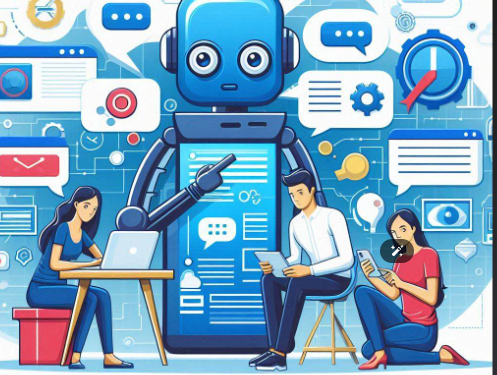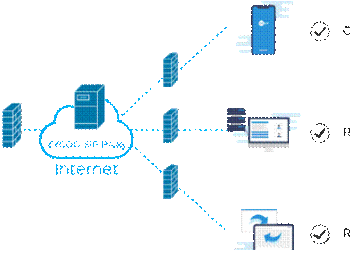Integrating a chatbot into your marketing automation strategy offers numerous benefits that can enhance your business operations. Chatbots provide a way to interact with customers around the clock, answering questions and guiding them through their journey without delay. They can handle routine tasks and gather valuable information, freeing up time for your team to focus on more complex issues. By incorporating a chatbot, you can improve customer engagement, streamline processes, and make your marketing efforts more efficient and effective.
What Are the Key Benefits of Integrating a Chatbot into Marketing Automation?
Integrating a chatbot into your marketing automation strategy offers several key benefits. Chatbots can engage with customers 24/7, providing instant responses to their questions and guiding them through various stages of their journey. This continuous availability helps keep potential leads interested and ensures that no opportunity is missed. By automating these interactions with a CAI Alternative, businesses can significantly reduce the time and effort needed for manual responses. By automating these interactions, businesses can significantly reduce the time and effort needed for manual responses.
In addition, chatbots can work seamlessly with tools like WhatsApp CRM, enhancing their effectiveness. By integrating chatbots with WhatsApp CRM, businesses can manage and track customer interactions more efficiently, gather valuable data, and tailor responses based on previous conversations. This integration streamlines communication and helps businesses provide a more personalized experience, ultimately improving customer satisfaction and boosting overall marketing efforts.
How Can Chatbots Enhance Customer Engagement in Your Marketing Strategy?
Chatbots can greatly enhance customer engagement by providing immediate and personalized interactions. A chatbot online is available around the clock, allowing customers to get answers to their questions and support whenever they need it, without waiting for business hours. This instant responsiveness keeps customers engaged and satisfied, as they receive timely assistance and information.
Moreover, chatbots can tailor their responses based on customer interactions and preferences, creating a more personalized experience. By analyzing user data and past conversations, a chatbot online can offer relevant recommendations and solutions, making customers feel valued and understood. This personalized approach helps build stronger relationships and encourages ongoing engagement with your brand.
What Role Do Chatbots Play in Streamlining Customer Interactions?
Chatbots play a crucial role in streamlining customer interactions by automating routine tasks and providing quick responses. They can handle common inquiries, such as frequently asked questions and basic support issues, without human intervention. This automation saves time for both customers and staff, as it reduces the need for manual responses and allows team members to focus on more complex tasks.
Additionally, chatbots can guide customers through various processes, such as completing forms or making purchases, with minimal effort. By offering step-by-step assistance and addressing issues promptly, chatbots make interactions more efficient and enjoyable. This streamlined approach helps improve customer satisfaction and ensures a smoother overall experience.
How Can Chatbots Improve Efficiency and ROI in Marketing Automation?
Chatbots can significantly improve efficiency and ROI in marketing automation by automating repetitive tasks and handling a high volume of customer interactions without additional cost. By managing routine inquiries and tasks, chatbots free up valuable time for your team, allowing them to focus on more strategic activities. This automation not only speeds up response times but also reduces the need for extra staff, leading to cost savings.
Furthermore, chatbots help boost ROI by enhancing lead generation and conversion rates. They can engage with visitors on your website or social media, qualify leads based on their responses, and guide them through the sales funnel. This proactive approach ensures that potential customers receive timely information and follow-up, increasing the chances of conversion and maximizing the return on your marketing investments.
In What Ways Do Chatbots Automate Routine Marketing Tasks?
Chatbots automate routine marketing tasks by handling repetitive activities that would otherwise require manual effort. For example, they can send automated responses to common customer questions, schedule follow-ups, and manage appointment bookings. This frees up time for marketing teams by taking care of these tasks without human intervention, allowing staff to focus on more strategic work.
Additionally, chatbots can collect and analyze data from interactions to generate leads and segment audiences automatically. They track user behavior, gather contact information, and provide personalized recommendations based on customer inputs. By managing these tasks efficiently, chatbots streamline marketing processes, improve response times, and help businesses run more smoothly.
How Can Chatbots Contribute to Better Data Collection and Analysis?
Chatbots contribute to better data collection and analysis by gathering valuable information from customer interactions. They can collect data such as user preferences, frequently asked questions, and feedback during conversations. This continuous flow of information helps businesses understand their customers better and identify trends or common issues.
Additionally, chatbots organize and analyze this data efficiently, providing insights into customer behavior and preferences. They can generate reports on interaction patterns and engagement levels, which helps businesses make informed decisions and tailor their marketing strategies. By automating data collection and analysis, chatbots enhance the accuracy and speed of understanding customer needs, leading to more effective and targeted marketing efforts.
Chatbots enhance marketing automation by streamlining routine tasks, improving data collection, and providing valuable insights. Their ability to handle repetitive interactions efficiently not only saves time but also boosts the accuracy of customer data analysis. By integrating chatbots into your strategy, you can achieve higher engagement, optimize processes, and ultimately drive better results in your marketing efforts.





![7 Best POS Software in the UK [2026 Edition]](https://todaynews.co.uk/wp-content/uploads/2026/02/7-Best-POS-Software-in-the-UK-2026-Edition-360x180.png)





































































